iOS 10 Beta Features Unencrypted Kernel Making it Easier to Discover Vulnerabilities
Apple's iOS 10 preview, seeded to developers last week, does not feature an encrypted kernel and thus gives users access to the inner workings of the operating system and potential security flaws, reports MIT Technology Review. It is not known if this was an unintentional mistake or done deliberately to encourage more bug reports.
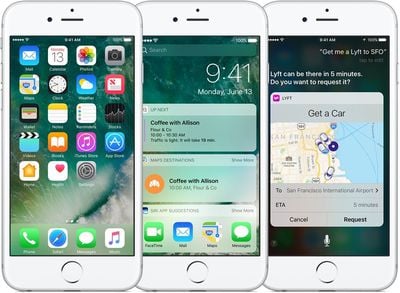
Security experts say the famously secretive company may have adopted a bold new strategy intended to encourage more people to report bugs in its software--or perhaps made an embarrassing mistake.
In past versions of iOS, Apple has encrypted the kernel, aka the core of the operating system, which dictates how software uses the iPhone's hardware and keeps it secure. According to experts who spoke to the MIT Technology Review, leaving iOS unencrypted doesn't leave the security of iOS 10 compromised, but it makes it easier to find flaws in the operating system. Security flaws in iOS can be used to create jailbreaks or create malware.
The goodies exposed publicly for the first time include a security measure designed to protect the kernel from being modified, says security researcher Mathew Solnik. "Now that it is public, people will be able to study it [and] potentially find ways around it," he says.
Apple has declined to comment on whether the lack of encryption was intentional or a mistake, but security expert Jonathan Zdziarski believes it was done by choice because it's not a mistake Apple is likely to have made. "This would have been an incredibly glaring oversight, like forgetting to put doors on an elevator," he told MIT Technology Review.
He further suggests Apple may have chosen this route to prevent the hoarding of vulnerabilities like the one that was ultimately used by the FBI to break into the iPhone 5c of San Bernardino shooter Syed Farook and to have more people looking at the code to discover latent security flaws.
Popular Stories
Apple will introduce new iPad Pro and iPad Air models in early May, according to Bloomberg's Mark Gurman. Gurman previously suggested the new iPads would come out in March, and then April, but the timeline has been pushed back once again. Subscribe to the MacRumors YouTube channel for more videos. Apple is working on updates to both the iPad Pro and iPad Air models. The iPad Pro models will...
In November, Apple announced that the iPhone would support the cross-platform messaging standard RCS (Rich Communication Services) in the Messages app starting "later" in 2024, and Google has now revealed a more narrow timeframe. In a since-deleted section of the revamped Google Messages web page, spotted by 9to5Google, Google said that Apple would be adopting RCS on the iPhone in the "fall...
Thieves in Montreal, Canada have been using Apple's AirTags to facilitate vehicle theft, according to a report from Vermont news sites WCAX and NBC5 (via 9to5Mac). Police officers in Burlington, Vermont have issued a warning about AirTags for drivers who recently visited Canada. Two Burlington residents found Apple AirTags in their vehicles after returning from trips to Montreal, and these...
Apple's WWDC 2024 dates have been announced, giving us timing for the unveiling of the company's next round of major operating system updates and likely some other announcements. This week also saw some disappointing news on the iPad front, with update timing for the iPad Pro and iPad Air pushed back from previous rumors. We did hear some new tidbits about what might be coming in iOS 18 and...
Photos of the first iPhone 16 cases have been shared online, offering another preview of the rumored new vertical rear camera arrangement on the standard iPhone 16 and iPhone 16 Plus. Image credit: Accessory leaker Sonny Dickson Over the last few months, Apple has been experimenting with different camera bump designs for the standard iPhone 16 models, all of which have featured a vertical ...
A $3 third-party app can now record spatial video on iPhone 15 Pro models in a higher resolution than Apple's very own Camera app. Thanks to an update first spotted by UploadVR, Spatialify can now record spatial videos with HDR in 1080p at 60fps or in 4K at 30fps. In comparison, Apple's native Camera app is limited to recording spatial video in 1080p at 30fps. Shortly after Apple's Vision ...




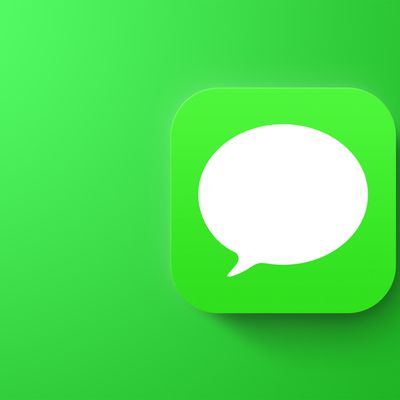
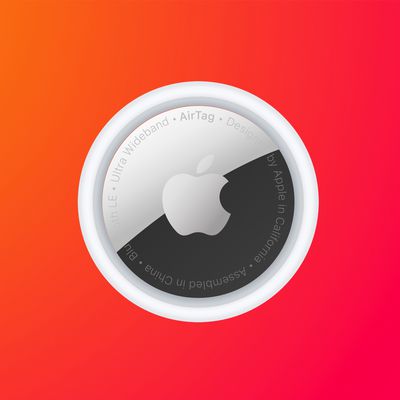
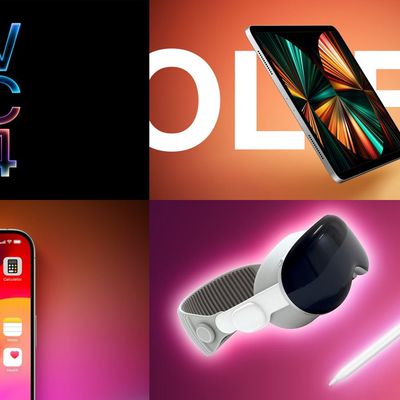
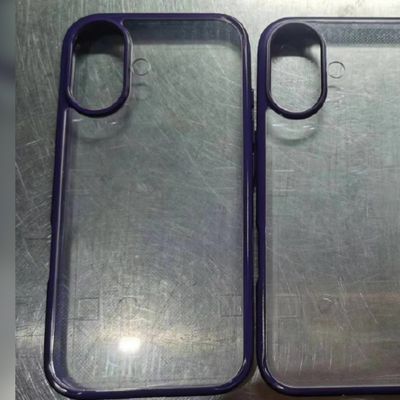













Top Rated Comments